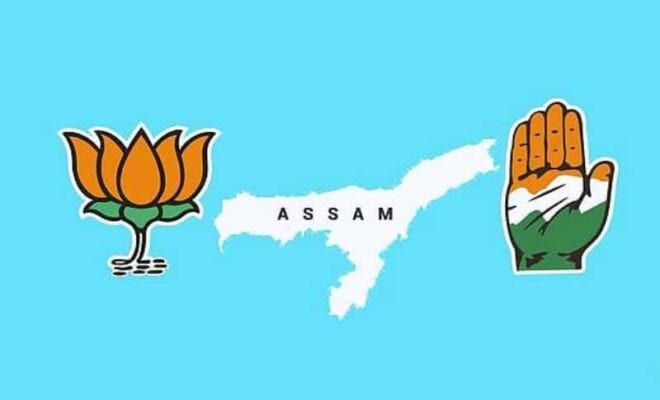Election Win In Assam Would Mean Tackling Immigration On Priority

Last updated on April 16th, 2021 at 05:14 am
The Assam elections will no longer be able to ignore the issue of immigration from the border, a situation that has been worrying the people of Assam for the longest time.
For the last two consecutive terms, the ruling government did not do anything about this issue. Meanwhile, addressing a rally in Assam, the Defence Minister Rajnath Singh has made a public assertion that the BJP government, if voted to power, will not allow Bangladeshi infiltrators to enter Assam at any cost.
So the immigration saga, is the moot point for parties to win the election in Assam. To show its seriousness, the BJP government has also said that it has started electronic surveillance across the Indo-Bangla border in Assam to stop infiltration from the neighbouring country.
Related Posts
On its part, Congress is also making promises of checking the infiltration movement. But where will the immigrants go is the big question. Once Bangladesh came into being, it also meant Hindus could coexist with Bengali Muslims. But since its formation, Hindus have gradually moved out from there.
In yet another rally, Amit Shah spoke for BJP and said that refugees will be given citizenship, but infiltrators will be thrown out. The Citizenship Amendment Act (CAA) was sidelined when the upheaval started. Then, the BJP went silent. How is it going to be different now, is something only time will tell.
Referring to infiltration, Shah has mentioned drug trade and land mafia at work between West Bengal, Assam and Bangladesh. Indeed, there is mixed messaging in Assam and West Bengal.
The BJP’s manifesto in Assam is silent on implementing CAA, which allows citizenship to Hindus, Christians, Buddhists, Parsis and Jains who came to India from Pakistan, Bangladesh and Afghanistan. Interestingly, before the 2016 elections in the state, which it won, the party promised implementation of CAA, which in the state would have meant automatic citizenship to minorities from Bangladesh, who came after the 1971 war of liberation, without going through the tedious NRC process.
Maybe, the leader representatives to exchange notes before they make public claims and promises.



